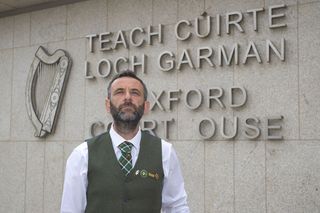House hunters will now find it even harder to get a mortgage - warns ESRI
Massive shortfall of about 14,100 properties comes amid the controversy over 'phantom homes'
Stock image
HOUSE hunters will find it harder to get a mortgage and tougher to find a home after an influential think-tank dramatically slashed its projection for new builds.
The State-backed ESRI is now expecting just 18,700 homes to be built this year, compared with a previous forecast of 25,000. The ESRI also cut its forecast for homes to be built next year from 31,000 to 23,200.
The massive shortfall of about 14,100 properties comes amid the controversy over 'phantom homes', after it emerged last week that Department of Housing figures on new homes were hugely overstated.
Analysts at bodies ranging from stockbrokers Davy to estate agents Savills have said that 35,000 extra units a year will be needed.
Dr Conor O'Toole, senior research officer at the ESRI, said: "We had expected housing completions of 25,000 units this year, up to 31,000 next year. If you take into account the level shift with the new CSO data... our figures would be closer to 18,700 units this year."
He said that the ESRI "certainly welcomed" the new, more accurate data and it gave an "important insight" - but that the country was further away from meeting the demand for houses than had been previously thought.
In its Quarterly Economic Commentary for Summer 2018, the ESRI said the Central Bank should consider making banks hold more money in reserve to guard against excessive lending.
The recommendations raise the prospect of house buyers finding it more difficult to get a mortgage, while the number of new houses on the market lags previous expectations.
Dr O'Toole said that while lending risk was being managed "much better" by the banks, compared with the Celtic Tiger, this could "quickly unravel".
He said there was no case for loosening the Central Bank's mortgage caps, and that in fact it should consider tightening the amount of money available via methods other than the mortgage caps. He said asking banks to hold more money in reserve "may be an approach that's prudent" given the current state of the market.
"Using these other levers and tightening those may be an appropriate way to manage the cycle going forward," Dr O'Toole said.
The think-tank also said there was no scope for a giveaway Budget this year, because of the Government's spending commitments for the National Development Plan, which is designed to boost this country's infrastructure.
ESRI research professor Kieran McQuinn said the Budget should be neutral and increases in spending should be matched by increases in the tax take.
"You really would want to be very wary about stimulating the economy through for instance any changes in personal tax rates or any change in tax rates generally," he said. "If you do want to reduce personal taxation rates... we think those should be offset by increases in taxation elsewhere so that the overall package is neutral."
Prof McQuinn said he thought the planned 'rainy day fund' was a good idea in principle. The fund, set to be introduced by Finance Minister Paschal Donohoe, will be used to set aside money that can boost the economy in the event of a downturn.
The ESRI echoed recent warnings on Ireland's exposure to turbulent geopolitical events.
"Growing political uncertainty in Italy, the exact nature of Brexit and the possibility of international trade wars could all have an adverse impact on the global economy," it said.
"The Irish economy, given its highly open nature, is especially vulnerable to these developments."
Join the Irish Independent WhatsApp channel
Stay up to date with all the latest news














